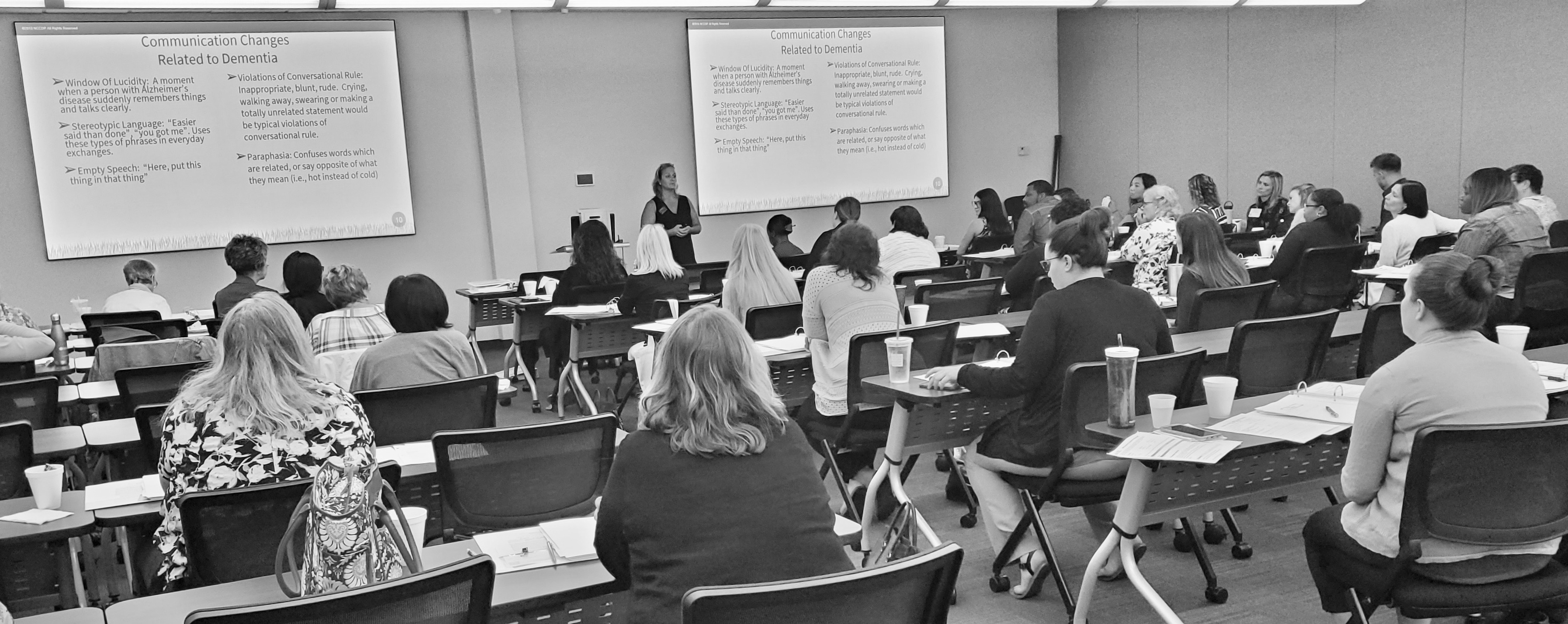|
Through your support, The Beacon Institute is able to support senior care providers with training and educational opportunities in order to enrich those lives they care for. Your tax-deductible donation to The Beacon Institute ensures that quality programming will continue to support providers in the field and create opportunities for new caregivers, ensuring that these programs will continue long into the future. |
![]()
As LifeSpan's educational affiliate, The Beacon Institute is the leader in education for senior care and service providers. We provide expert educational programs to professionals, caregivers and providers in support of advancing knowledge across the adult lifespan. We train thousands annually on critical issues in our own Handelman Conference Center, offer live webinars and on-demand training opportunities, and host the largest annual senior care conference for the Mid-Atlantic region. Beacon educational offerings cover a wide range of leadership and management, operational, clinical, financial, legal, compliance, regulatory, and best-practice topics.
Seminars and Webinars: Explore the Beacon event calendar to view all available educational opportunities. These face-to-face and online web-based trainings provide opportunities for instructor-led interactive learning, peer support, and networking. These seminars allow opportunities for instructor-to-learner and learner-to-learner interactions, and for instructors in a small group to provide tailored approaches, answer specific questions and give immediate feedback.
CNA/GNA Training Program: Are you a self-starter? Interested in healthcare but don't have a schedule that allows you to be in class during the day? Are you motivated and able to manage your time to get things done? The Beacon Institute's CNA/GNA training program is a six week program which provides both online and in-person instruction. Upon successful completion,graduates will be certified as a nurse assistant, with the knowledge and skills necessary to take the Maryland exam to become a geriatric nurse assistant.
On Demand Training: Classes when you want them - on your schedule! Browse our catalog of online training courses and take what you need, when you need it.
- The Beacon Institute, partnered with Training and eTracking Solutions, has curated a selection of classes to support providers of care to seniors and which are accessible online, at any time. Whether you are researching a specific topic or just need a few CEUs, our online catalog will offer you ease of access and convenience. View the course catalog.
- Beacon is partnering with the Institute for Post-Accute Care (INSPAC) to offer a member-only registration discount for LifeSpan members in good standing, on select online courses. View current trainings and contact Beacon at registration@beaconinstitute.org to request your discount code for registration.
- Serving as the official affiliate for Maryland, The Beacon Institute is proud to offer the courses available through AHCA/NCAL's educational catalog. Find your next class here.
- The Beacon Institute, along with Innovation Horizons, is proud to offer an on-demand continuing education series on Alzheimer's Disease and Related Dementias (ADRD). This four-part series provides culturally-relevant training and education to healthcare providers, primary care physicians, nursing professionals, non-clinicians, caregivers, and healthcare administrators to increase early identification and diagnosis of individuals with ADRD. The courses can be taken in any order. These courses were developed using grant funding provided to Beacon from the Maryland Department of Health, Center for Chronic Disease Prevention and Control.
 Meet The Beacon Institute's Board
Meet The Beacon Institute's Board
The Beacon Institute's Vision: To be the leader in education for care and service providers.
The Beacon Institute's Mission: To provide expert educational programs to professionals, caregivers and providers – advancing knowledge across the adult lifespan.
The Beacon Institute does not discriminate based on race, color, religion, sex (including pregnancy, sexual orientation, or gender identity), national origin, disability, or age.


